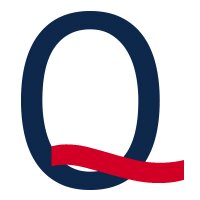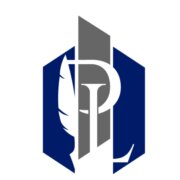Best Sanctions & Export Controls Lawyers in Santo Domingo
Share your needs with us, get contacted by law firms.
Free. Takes 2 min.
List of the best lawyers in Santo Domingo, Dominican Republic
About Sanctions & Export Controls Law in Santo Domingo, Dominican Republic
Sanctions and export controls are essential components of international trade law, ensuring that individuals and businesses comply with both domestic regulations and international agreements. In Santo Domingo, Dominican Republic, sanctions typically refer to restrictive measures or trade embargoes imposed by the government, often in alignment with United Nations or regional mandates. Export controls, on the other hand, regulate the movement of specific goods, technologies, and services in and out of the country to protect national security, prevent the proliferation of weapons, and meet international obligations. Compliance in this area is critical for companies and individuals involved in importing or exporting products, providing cross-border services, or engaging in international financial transactions.
Why You May Need a Lawyer
Navigating the legal landscape for sanctions and export controls can be complex due to the dynamic nature of these regulations and the penalties for non-compliance. Common situations where a legal expert is valuable include:
- Assisting businesses that import or export goods and need to ensure compliance with Dominican and international regulations.
- Defending companies or individuals under investigation for potential violations of sanctions or export laws.
- Guiding financial institutions on lawful cross-border transactions to avoid inadvertently breaching sanctions.
- Advising on contracts and partnerships with foreign parties, especially where countries subject to sanctions are involved.
- Providing due diligence for mergers, acquisitions, and joint ventures to uncover any risks related to export restrictions.
- Handling clearance and licensing processes for sensitive or dual-use goods.
- Training staff and designing compliance programs to avoid inadvertent legal breaches.
Local Laws Overview
In the Dominican Republic, sanctions and export controls are governed by a combination of domestic regulations and international commitments:
- The country implements United Nations Security Council resolutions, meaning UN-imposed sanctions must be observed.
- There are specific export and import controls on items like firearms, certain chemicals, advanced technology, and culturally significant artifacts.
- The Ministry of Foreign Affairs and the Dominican Customs Authority play a key role in enforcing these laws.
- Local laws require proper permits or licenses for the export of certain goods, especially those with potential military or dual-use applications.
- There are criminal and civil penalties for non-compliance, including fines, seizure of goods, suspension of business licenses, and possible imprisonment.
- Financial transactions with certain countries or individuals blacklisted internationally may be prohibited or require prior authorization.
Frequently Asked Questions
What are sanctions, and do they apply to businesses in the Dominican Republic?
Sanctions are restrictive measures, often in the form of trade barriers or financial restrictions, which the Dominican Republic enforces in accordance with international obligations, notably those of the United Nations. They apply to all businesses and individuals operating in the country.
What goods are typically subject to export controls?
Commonly controlled goods include weapons, dual-use technologies with civilian and military applications, chemicals, pharmaceuticals, and items of cultural heritage. The specific list can change according to international agreements and national security interests.
Do I need a special license to export goods from Santo Domingo?
Depending on the goods or services in question, you may need a government-issued export license. This is particularly the case for sensitive products subject to controls for security or international policy reasons.
What are the penalties for violating sanctions or export controls?
Penalties range from administrative fines and confiscation of goods to criminal charges, including imprisonment, especially in cases of intentional or repeated violations.
How can I find out if a country or person is subject to sanctions?
Official lists are maintained by the Dominican authorities, reflecting United Nations and regional sanctions. A lawyer can help you assess the latest restrictions or check with the Ministry of Foreign Affairs.
Are financial transactions with sanctioned entities prohibited?
Yes, conducting business or transferring funds to or from sanctioned countries or individuals is generally prohibited without prior government approval.
Do sanctions only apply to physical goods?
No, sanctions can also apply to services, technology transfers, and financial transactions, not just the shipment of physical items.
Can sanctions and export controls change?
Yes, these laws can change rapidly in response to geopolitical developments. Staying compliant requires continuous monitoring and, ideally, legal advice.
Who enforces sanctions and export controls in the Dominican Republic?
Multiple bodies are involved, including the Ministry of Foreign Affairs, the Directorate General of Customs, and law enforcement agencies.
What should I do if my business receives a notice of alleged violation?
Seek immediate legal assistance. Responding appropriately at an early stage can help mitigate penalties and clarify your legal position.
Additional Resources
If you need more information about sanctions and export controls in Santo Domingo, consider reaching out to:
- The Ministry of Foreign Affairs of the Dominican Republic for information on international agreements and current sanctions.
- The Directorate General of Customs for guidance on export/import procedures and licensing.
- The National Guard or Armed Forces for questions regarding dual-use items and defense-related exports.
- The Dominican Export & Investment Center (CEI-RD) for business support and compliance guidance.
- The United Nations Sanctions Lists for updated information about global sanction regimes that may apply locally.
Next Steps
If you require legal assistance with sanctions or export controls in Santo Domingo:
- Identify your specific need, such as compliance advice, licensing, or defense against an enforcement action.
- Consult with a qualified lawyer who specializes in international trade, export controls, or customs law in the Dominican Republic.
- Gather all relevant documentation, including contracts, licenses, and any communications with government bodies.
- Stay informed about any changes in regulations that might affect your situation or business.
- Take timely action to ensure compliance and to avoid or minimize legal risks and penalties.
Understanding and complying with sanctions and export controls is critical in today's globalized economy. Legal professionals can provide tailored guidance, protect your interests, and help you navigate the intricacies of the law in Santo Domingo, Dominican Republic.
Lawzana helps you find the best lawyers and law firms in Santo Domingo through a curated and pre-screened list of qualified legal professionals. Our platform offers rankings and detailed profiles of attorneys and law firms, allowing you to compare based on practice areas, including Sanctions & Export Controls, experience, and client feedback.
Each profile includes a description of the firm's areas of practice, client reviews, team members and partners, year of establishment, spoken languages, office locations, contact information, social media presence, and any published articles or resources. Most firms on our platform speak English and are experienced in both local and international legal matters.
Get a quote from top-rated law firms in Santo Domingo, Dominican Republic — quickly, securely, and without unnecessary hassle.
Disclaimer:
The information provided on this page is for general informational purposes only and does not constitute legal advice. While we strive to ensure the accuracy and relevance of the content, legal information may change over time, and interpretations of the law can vary. You should always consult with a qualified legal professional for advice specific to your situation.
We disclaim all liability for actions taken or not taken based on the content of this page. If you believe any information is incorrect or outdated, please contact us, and we will review and update it where appropriate.














